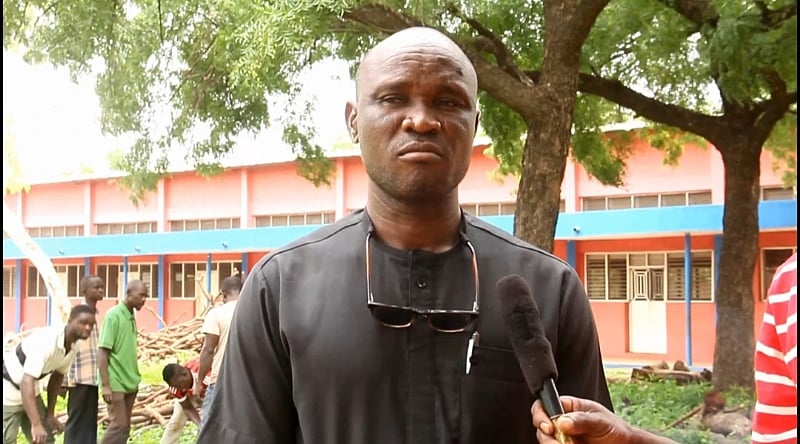The tragic death of Mohammed Imoro Hakim Kundima, a final-year student at Bawku Senior High School, sparked a wave of concern and calls for student relocation amidst the ongoing conflict in Bawku, Ghana. However, the school’s headmaster, Reverend Bukari Abugbilla, has firmly rejected these calls, arguing that such a move would not only fail to address the root causes of the violence but also potentially endanger the students further. He believes that relocating students to other districts or regions would effectively “export” the conflict to previously safe areas, exposing the students’ identities and making them more vulnerable to targeted attacks. Rev. Abugbilla emphasizes the importance of containing and resolving the conflict within Bawku itself, rather than displacing the students and spreading the risk.
Following the tragic incident, the school conducted a traditional cleansing ceremony, rooted in Kusaal customs, to address the spiritual and emotional repercussions of the violence. This ceremony involved symbolic acts, such as the cleansing of blood and the burial of an okro stick, signifying a commitment to ending the violence and preventing future tragedies on campus. The ritual burial of the okro stick, performed by leaders from the Kpalwega community, represents a spiritual plea for peace and protection for the students, aiming to create a barrier against further attacks. This traditional approach underscores the community’s deep-seated belief in the power of ritual and reconciliation in the face of conflict.
Rev. Abugbilla highlighted the proactive measures taken by the school’s management board to ensure the safety and well-being of the students. He emphasized their engagement with key stakeholders within the Bawku municipality, including the paramount chief, Zugraan Asigri Abugrago Azoka II, to garner support and collaborate on security efforts. The involvement of the Kusaug Traditional Council demonstrates the importance of community-led initiatives in addressing the conflict and fostering a sense of collective responsibility for the students’ safety. This collaborative approach aims to build bridges between different groups within the community and foster a shared commitment to peace.
Furthermore, the Municipal Security Council, recognizing the urgency of the situation, has deployed police officers to the school to provide round-the-clock protection for both students and staff. This increased security presence aims to deter potential attackers and provide a sense of reassurance to the school community. The 24/7 patrols underscore the commitment of local authorities to maintain order and ensure the safety of the educational environment. This swift response by the security council demonstrates a proactive approach to preventing further violence and maintaining stability within the school and the wider community.
Rev. Abugbilla’s stance against relocation stems from his conviction that it would be a counterproductive measure, potentially exacerbating the students’ vulnerability. He believes that scattering them across different locations would make them easier targets, highlighting their association with the conflict and potentially drawing unwanted attention. Instead, he advocates for a comprehensive approach that addresses the underlying causes of the violence within Bawku, while simultaneously strengthening security measures within the school itself. This approach aims to create a safe and stable learning environment for the students, allowing them to continue their education without fear of further attacks.
The combined efforts of the school administration, local leaders, and security forces represent a multifaceted approach to addressing the complex security challenges in Bawku. By engaging with traditional authorities, implementing enhanced security measures, and promoting community-led peace initiatives, they aim to create a more secure environment for the students and foster a lasting peace within the community. The tragic death of Mohammed Imoro Hakim Kundima serves as a stark reminder of the urgent need for collaborative action to address the root causes of the conflict and prevent future tragedies. The ongoing efforts underscore a commitment to ensuring that students can pursue their education without fear, in a safe and supportive environment.


